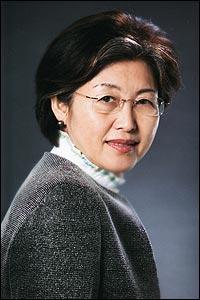China
Chinese Ambassador to UK: If the West could listen attentively to China
Source: telegraph.co.uk | 04-14-2008 19:51
Special Report: 2008 Beijing Olympic Games(By Fu Ying, China's ambassador to London)
In the morning of April 6, looking at the snowflakes falling outside the window, I could not but wonder what the torch relay would be like.
About 8 hours later, when the torch finally struggled through the route, Olympic gold medalist Dame Kelly Holmes ran up to light the Olympic cauldron at the O2 dome, and 4,000 spectators cheered, obviously with a sense of relief.
This day will be remembered, as Beijing met London with splashes and sparkles. It was an encounter between China, the first developing country to host the Olympics, and Britain, the first western country to greet the 2008 torch.
On the bus to the airport, I was with some young girls from the Beijing team, including an Olympic gold medalist, Miss Qiao.
 |
| Fu Ying, China's ambassador to UK |
They were convinced that the people here were against them. One girl remarked she couldn't believe this land nourished Shakespeare and Dickens.
Another asked: where is the "gentlemenship"? I used all my knowledge to argue for London, and looking into their watery eyes, I knew I was not succeeding. I can't blame them.
They were running between vehicles for the whole day, noses red and hands cold, trying to service the torch bearers.
They had only about three hours of sleep the previous night and some were having lunch sandwiches just now.
Worse still, they had to endure repeated violent attacks on the torch throughout the relay. I was fortunate to sit at the rear of the bus and saw smiling faces of Londoners who came out in the tens of thousands, old people waving and young performers dancing, braving the cold weather.
In the darkness of a London night, waving the chartered plane goodbye, I had a feeling the plane was heavier than when it landed. The torch will carry on, and the journey will educate the more than a billion Chinese people about the world, and the world about China.
A young friend in China wrote to me after watching the event on the BBC: "I felt so many things all at once – sadness, anger and confusion." It must have dawned on many like him that simply a sincere heart was not enough to ensure China's smooth integration with the world.
The wall that stands in China's way to the world is thick. In China, what's hot at this moment on the internet, which has 200 million users there, is not only the attempts to snatch the torch but also some moving images of Jin Jing, a slim young girl, a Paralympic athlete in a wheelchair, helped by a blind athlete. She held the torch with both arms to her chest as violent "protesters" tried repeatedly to grab it from her during the Paris relay.
There is especially infuriated criticism of some of the misreporting of China in recent weeks, such as crafting photos or even using photos from other countries to prove a crackdown. On the other side of the wall, the story is different.
Standing in the middle, I am concerned that mutual perceptions between the people of China and the West are quickly drifting in opposite directions. I cannot help asking why, when it comes to China, the generalised accusations can easily be accepted without people questioning what exactly and specifically they mean; why any story or figures can stay on the news for days without factual support.
Even my own participation in the torch relay had been the subject of continuous speculation. I remember a local friend said, "We all like to read media stories. Only when it comes to ourselves do we know they can't all be true."
Of those who protested loudly, many probably have not seen Tibet. For the Chinese people, Tibet is a loved land and information about it is ample. Four million tourists visit Tibet every year. The past five years saw the income of farmers and herdsmen increasing by 83.3 per cent. In 2006 there were more than 1,000 schools, with 500,000 students.



